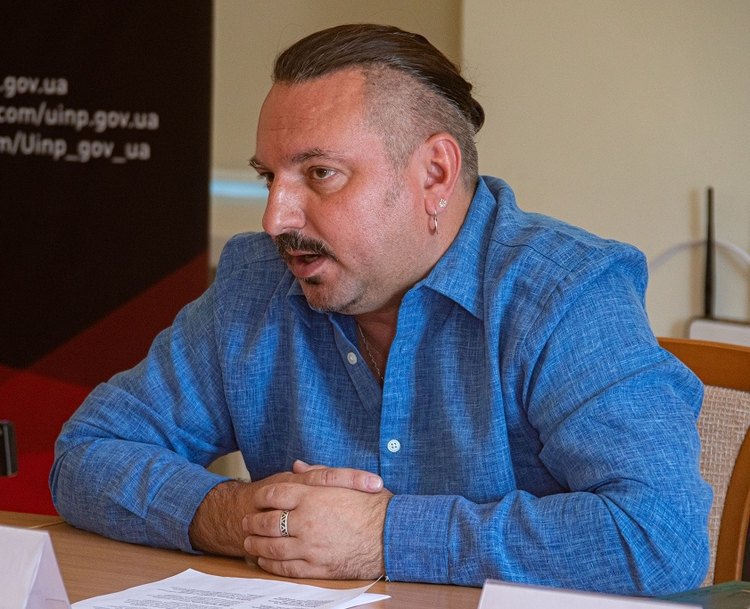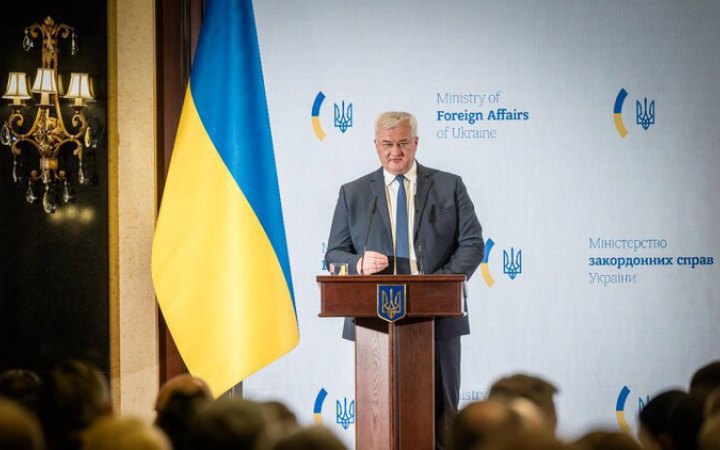Journalist, historian and senior researcher at the National Museum of the History of Ukraine in World War II Roman Kabachiy considers such a policy important from the point of view of historical memory:
"This will contribute to the formation of Ukrainians' historical memory of the territories that ended up outside Ukraine in 1991. This is not a claim to these lands, but a way of not renouncing the heritage formed by generations of Ukrainians," he notes.

He is convinced that the names Peremyshl, Kholm, Syanik, and Pryashiv reflect the presence of Ukrainians in these regions, which was destroyed or displaced during the 20th century.
‘Berestya should sound exactly like Beresteyskyy Avenue in Kyiv. It is part of our culture,’ adds Roman Kabachiy.
At the same time, he acknowledges the need to avoid confusion in transliteration: Перемишль (Peremyshl) in Ukrainian, Przemysl in Latin.
"This policy should be implemented so that people from neighbouring countries can understand where they are going by train or bus. That is, for example, Перемишль (Peremyshl) in Cyrillic, but Przemysl in Latin. There have already been examples when signs on the roads of the Volyn Region showed Kholm, but this spelling did not correspond to the Latin spelling Chelm at all. Therefore, to avoid misunderstandings, it is worth duplicating here. And in the case of Kholm, it is necessary to at least restore the parity that Ukrzaliznytsya introduced with Przemyśl. In Ukrainian and Cyrillic, it is Перемишль/Peremyshl, and in Latin, it is Przemysl. But under no circumstances should it be Chelm," the historian concludes.
Public figures and media personalities have spoken out against this decision. Writer, publicist and editor of the ‘Opinions’ section of the publication Ukraïna Moderna, Oksana Forostyna, sharply criticised the idea. She emphasised the inconsistency of the initiative with the profile of the Ministry of Foreign Affairs:
"I don't know who Minister Andriy Sybiha owes his advice to, but it is very unfortunate that he took it. First of all, it is unclear why the initiative comes from the Ministry of Foreign Affairs if ‘it is specifically about use in Ukraine, we are not imposing anything on anyone.’ Okay, so documents in Ukrainian will spell it as Ryashiv, but what about documents in English?”

Forostyna believes that the initiative contradicts previous diplomatic efforts to introduce spellings such as Kyiv, Odesa, etc.:
"I had the illusion that the goal of diplomacy was to facilitate understanding, not the opposite. Trying to grasp the logic, I sinfully thought that the minister considers Ryashiv to be as Ukrainian a place name as Kyiv," she continues.
In addition, she warns against ‘retrospective romanticism,’ which may resemble the rhetoric of states that appeal to ‘historical greatness’ instead of modern international law:
"Isn't the official position of our state “the borders of 1991”? I know that there is no shortage of fighters for “ethnographic territories” in Ukraine, but I expected that serious people work in our Ministry of Foreign Affairs and that these two groups do not overlap. But the worst news in this message, in my opinion, is the explanation of the initiative as ‘self-respect’ and the thesis that ‘we must get rid of inferiority complexes once and for all.’ Imagine if tomorrow the Italian Foreign Ministry came up with an initiative to use the name Londinium (instead of the usual Londra) because, you see, London was founded by the Romans, and appealed to ‘self-respect’. We already know of one country that is trying to find sources of self-respect in the depths of the Middle Ages, and it is extremely paradoxical that the Foreign Ministry is trying to emulate it. I thought we were at war with that country," Oksana Forostyna emphasises.
Darya Badyor, editor-in-chief of Re/visions Journal, also criticises such steps by the Ministry of Foreign Affairs:

"I haven't commented on cultural policy for a long time because it's painful and reminiscent of Groundhog Day, only without the cheerful soundtrack. But this news knocked me out.
‘The Ministry of Foreign Affairs will initiate the systematisation of the use of Ukrainian names for foreign geographical objects. Professional discussions, broad public debate and interdepartmental coordination are planned in order to implement the changes. ’This concerns use in Ukraine specifically; we are not imposing anything on anyone," the minister noted.
The Ministry of Foreign Affairs ‘is talking about use in Ukraine.’ Is it just me, or does this seem strange? Doesn't the Ministry of Foreign Affairs have anything better to do? Are we doing well with funding for the Ukrainian Institute, foreign projects, Ukrainian representative offices abroad, and cultural attachés in every key country, at least? Not to mention that part of this decision is based on imperial logic and will lead to a new hellish cycle of conflict with Poland and Hungary," she wrote on her Facebook page.
What next?
The Ministry of Foreign Affairs has announced that the initiative still requires ‘interdepartmental and public discussion.’ A separate register of place names should be created for use in the Ukrainian context, and recommendations for transliteration should be developed to avoid misunderstandings.
The question remains: will the return of historical names be an act of self-respect or a source of new misunderstanding?










